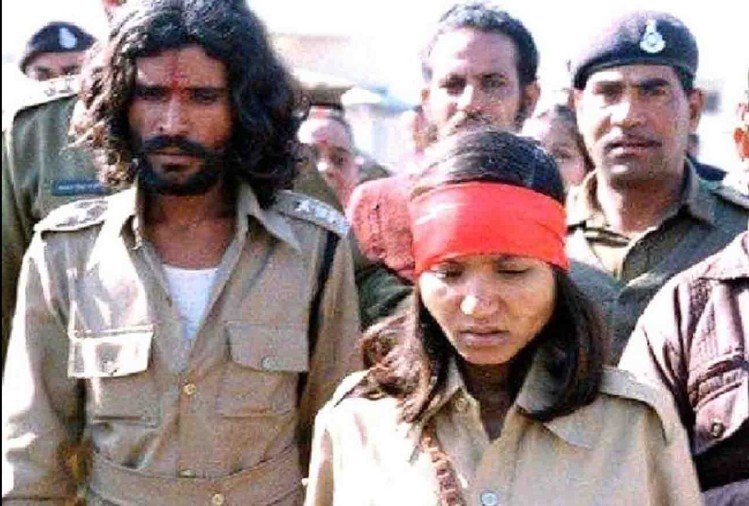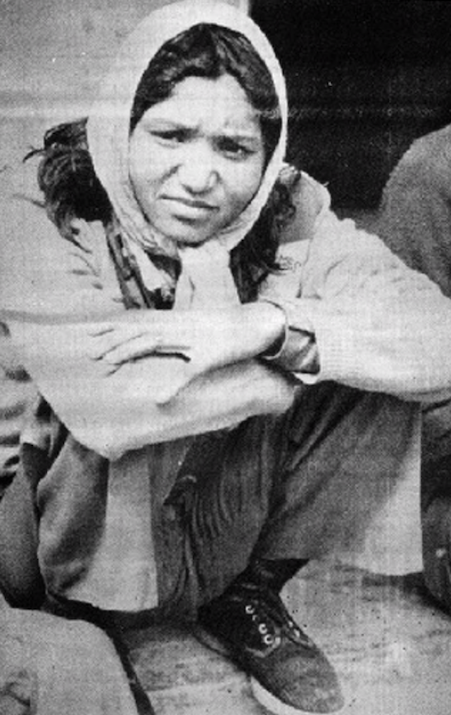By Shriya Tandon

Born into the Mallah (boatmen) community on August 10, 1963, to a penurious family, it is safe to say formal education is merely one of the million other things that Phoolan Devi missed out on. In view of the fact that India’s focus in the mid-twentieth century was on maintaining the country’s unity and building pillars of solidarity, it comes as no surprise that the treatment of women in a newly independent country brimming with customs that prioritise patriarchy had taken a back seat. Therefore, learning that Phoolan Devi was married off at the tender age of eleven to a man almost thrice her age in exchange for a cow, doesn’t quite push us into disbelief; and neither does the fact that it was her husband’s constant abuse of her dignity and body that caused her to run away from him soon after. Conflict continues to exist between arguments explaining how Phoolan Devi came to be associated with bandits but the prevalent understanding is that she was abducted by the gang of bandits who she later joined.
Upon joining her first gang she learned the skills required to plunder and evade the police from the new gang leader who shared a mutual bond of affection with Devi. Upon the gang leader’s assassination, Phoolan was taken into captivity by a group of Thakurs who kept her confined for three days and raped her repeatedly. By somehow managing to escape, Devi realised she had garnered much admiration for herself among the gangs of dacoits. Therefore, she formed a gang of her own, and aside from committing to protect the women and children of the villages she plundered, she was also out on a mission to seek vengeance. The Behmai massacre has a place of its own in the sequence of events that shaped Phoolan’s life. In order to avenge her rape by the bandits of the Thakur caste, the bandit queen Phoolan Devi gunned down an approximate number of 20 Thakurs in the Behmai village of Uttar Pradesh’s Kanpur on February 14, 1981. The resignation of the then Chief Minister of Uttar Pradesh, V.P. Singh, appears to be the political fallout of this very incident. The massacre had the police intensely hunting for Phoolan Devi and after eluding capture for about two years, Devi and her gang negotiated her surrender in 1983 with a list on her own demands that were required to be met.

Though agreeing to only eight years of imprisonment, Phoolan Devi spent eleven years in prison for a sum total of forty-eight crimes including, but not limited to, arson, plunder, multiple murders and kidnapping. Shortly before her release in 1994, Phoolan was made the subject of the Bollywood film ‘The Bandit Queen’. After serving her time in prison, Phoolan Devi renounced her life of crime and took to politics. Capitalising on the opportunity provided by her renown, she joined Samajwadi Party and won the 1996 elections to Lok Sabha to serve as a Member of Parliament from the Mirzapur constituency, making herself the first-ever low-caste woman to hold that distinction. She lost her seat soon after but regained it in 1999 elections. Most of her political career was spent in working for the poor and lower caste people, as she related to their struggles on a multiplicity of levels. While serving her second term, she was assassinated in front of her home in Delhi for unknown reasons on July 25, 2001. In August 2014, Sher Singh Rana was convicted for the murder of Phoolan Devi but was granted bail in October 2016 post which he launched his own party called Rashtravadi Janlok Party. The latest update on Devi’s life events is that the case on the Behmai massacre is still ongoing as of January 2020.
Phoolan Devi’s story inspires us to value our dignity as women and fight for it while her courage evokes a sense of admiration in us even though we may not agree with her methods of vengeance. She is a feminist icon whose legacy consists of not only her exploits as a bandit but also a series of events that led up to her desire for retribution. She endured poverty, child-marriage, multiple rapes and most of all, being humiliated and scorned since birth for being that which she had no control over – a woman. It goes without saying that she had her fair number of flaws which cannot simply be looked over. Her means of procuring justice for what was done to her since birth had debatable justifiability at best and blatantly recklessness at worst, the cost of which were lives of innumerable people. However, to make her entire existence revolve around all that she did not do right would be shallow of us. We cannot help but give her credit for experiencing the destitute life that she did and still emerging as a hero to a great mass of people. India’s celebrated Bandit Queen is not just a woman who mastered how to slay her own dragons, she is also a legend worth looking up to from time to time even today.


What are the best free blogs that allow user-sponsored advertising and sales?